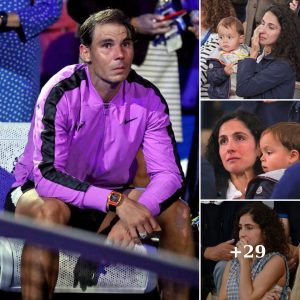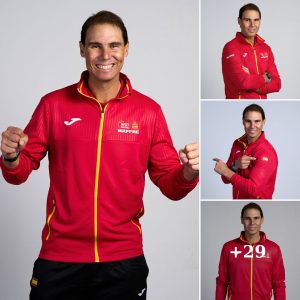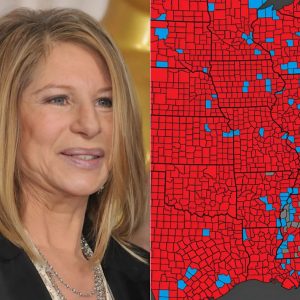When Prince Harry and Meghan Markle agreed to welcome an ITV documentary crew on their first official overseas royal tour five years ago, it appeared to be a straightforward public relations opportunity. They were guaranteed a sympathetic portrayal from Tom Bradby, a trusted friend of Prince Harry who had attended their wedding.
The resulting program, Harry & Meghan: An African Journey, seemed poised to showcase them as conscientious and warm-hearted working royals, enhancing their image as the modern, charismatic faces of the Royal Family.
However, what aired proved to be more than just a promotional piece; it became a poignant reflection on their struggles and aspirations. Instead of solidifying their place within the royal framework, the film turned into a somber epitaph for their dream of balancing life between Buckingham Palace and the allure of Hollywood.
Initially intended to elevate their profile, the documentary inadvertently highlighted the challenges they faced, ultimately foreshadowing their departure from royal duties and their quest for a new life.




Less than three months later, Prince Harry and Meghan Markle found themselves effectively ousted from the Royal Family. They were stripped of their “Royal Highness” titles and removed from their royal duties following their unilateral decision to step back from being full-time senior royals.
The couple expressed a desire to spend more time in California, achieve financial independence, and undertake only occasional engagements on behalf of the monarchy.
So, how did everything unravel so quickly? What impact did Tom Bradby’s documentary have on their sudden estrangement?
Their trip to Africa was originally crafted to highlight Harry and Meghan’s commitment to humanitarian causes. With the backing of the Foreign Office, they traveled to Cape Town with their infant son Archie, embarking on a whirlwind tour that also included Botswana, Malawi, and Angola.
During this journey, Harry paid homage to his mother’s advocacy by visiting initiatives focused on clearing landmines left from the country’s lengthy civil war. The cameras captured the couple addressing pressing humanitarian issues in a region where countless individuals live in extreme poverty and have notably low life expectancy rates.
The filmmakers must have been thrilled when Meghan met with young women in Nyanga township, known as the murder capital of South Africa. “I am here with you as a mother, as a wife, as a woman, as a woman of color and as your sister,” she told a gathering at a women’s center.
While she was a princess accompanied by a camera crew and could have easily left at any moment, her words resonated deeply, offering her audience a vision of hope.
However, as the documentary progressed, it became apparent that the focus shifted away from the charitable efforts and the struggles of Africa’s impoverished, placing more emphasis on the royal couple themselves.
It soon became evident that Harry and Meghan overlooked a fundamental principle of royal duty: to maintain a level of discretion about their personal lives and to direct attention toward the causes they were there to support.
Perhaps the distance from home or their friendship with Bradby influenced their perspective, but it became increasingly clear throughout the documentary that the dire realities faced by those in Africa—such as women receiving self-defense training against rampant violence, young people impacted by HIV/AIDS, and school-age landmine victims—were not at the forefront of their thoughts.
In a poignant moment filmed in the African veldt, Harry opened up about his feelings. When asked by Bradby if he had found peace regarding his mother’s death in 1997, he replied, “I think probably a wound that festers. Being part of this family, and this role, and this job, every single time I see a camera, every single time I hear a click, every single time I see a flash, it takes me straight back.”






Similarly, when Mr Bradby asked Meghan how she was, she teared up, saying: ‘Thank you for asking, because not many people have asked if I’m okay.
‘But it’s a very real thing to be going through behind the scenes.’
Again, it seems, she wasn’t complaining about bearing witness to the tragic human stories they had seen in Africa, but about the awfulness of people in the media being being mean to her.
But the crucial, 𝓀𝒾𝓁𝓁er revelation came from Harry, who confirmed when quizzed by Mr Bradby what many had long rumoured: that he and Prince William, brothers who were once so close, were now estranged.
‘Part of this role and part of this job, and this family, being under the pressure that it’s under, inevitably, you know, stuff happens,’ he said.
‘But look, we’re brothers, we’ll always be brothers. And we’re certainly on different paths at the moment, but I’ll always be there for him, as I know he’ll always be there for me.’
Certainly, many at court would have considered this admission, however vaguely worded, to be an unforgivable repeat of the sins of his mother Princess Diana, who was the first member of the family to break the strict Royal omertà and talk about private matters on TV.
In fact, Harry did not reveal the full truth, which was that the two princes had cut ties long before then and had not been on speaking terms before Harry and Meghan went to Australia a year previously in October 2018.
An indication of just how much the royals had invested in Harry and Meghan’s trip to Africa came in the accounts published the following year, which showed the 10-day tour was the most expensive royal trip of the year.
An astonishing £245,643 was spent on scheduled flights and a private jet for the couple and their entourage.
As it unfolded amid favourable press coverage, it was regarded by both government and the Royal Household as a great success.
But then, on the last day of the tour, Harry and Meghan issued a lengthy bombshell statement on their website, in which they whined about the press’s treatment of them.
The resulting storm ensured that any lingering goodwill from the tour evaporated in an instant.
And when a few weeks later ITV screened ‘Harry and Meghan: An African Journey’, reviewers were united in disbelief at the couple’s apparent self-absorption in the face of so much real pain and suffering.
Suddenly, the Sus𝓈ℯ𝓍es seemed not so much the new, modern face of the Royal Family, but a pair of self-absorbed narcissists with deeply flawed judgement.
And while ‘Harry and Meghan: An African Journey’ was clearly nowhere near as much as a disaster as Prince Andrew’s car-crash TV interview with Emily Maitlis in 2019, or as earthshaking as Diana’s interview with Martin Bashir, it widely seen as an own-goal by viewers and critics on both sides of the Atlantic.
Before the film and the couple’s angry tirade and lawsuits, it would have seemed unthinkable that Harry and Meghan would ever be effectively blackballed from the Royal Family.
But after their TV documentary airing the family’s dirty laundry, the late Queen’s decision to cast them out rather than grant their wish to become part-time royals seems far more understandable.





Although, however hostile the critical and public reception to the film, it clearly went down well with Harry and Meghan.
The Duke of Sus𝓈ℯ𝓍 was so pleased by Mr Bradby’s sensitive handling of his and Meghan’s complaints about the problems in their lives, that he chose his old friend to open his heart to last year to in a televised interview that coincided with the publication of his memoir ‘Spare’.
Now, of course, Harry is reportedly seeking to build bridges with his father King Charles and with his brother, the heir to the throne.
One problem he may find difficult to overcome is that his gripes, unlike harsh words in ordinary family disputes, are not so easily forgotten.
They are on record in his book, in his sit-down interview with Tom Bradby and in Harry and Meghan: An African Journey. And they have been seen by millions.





